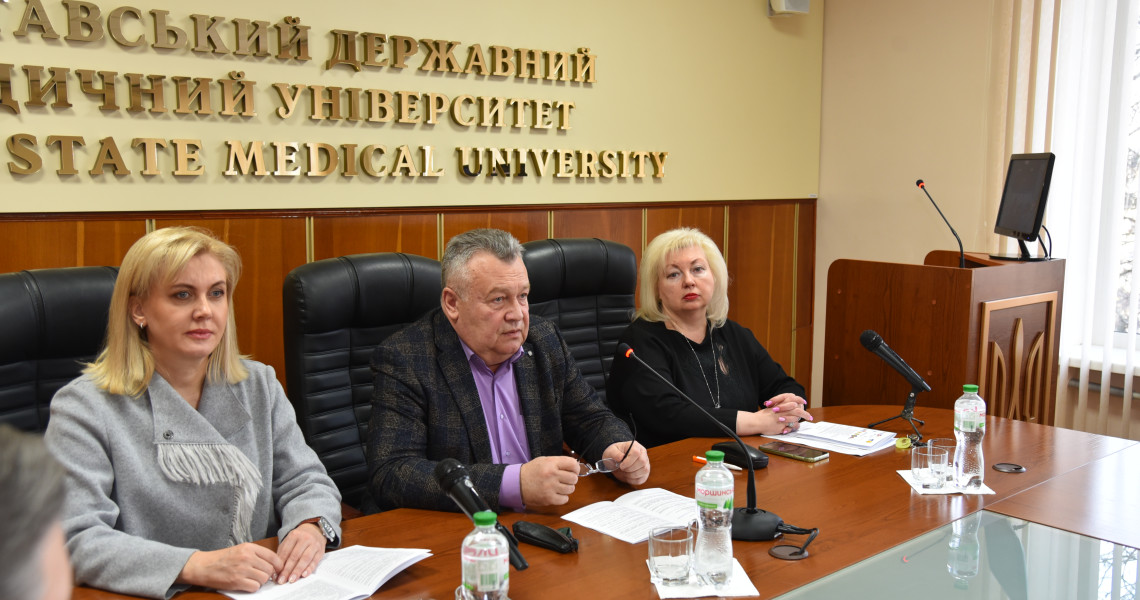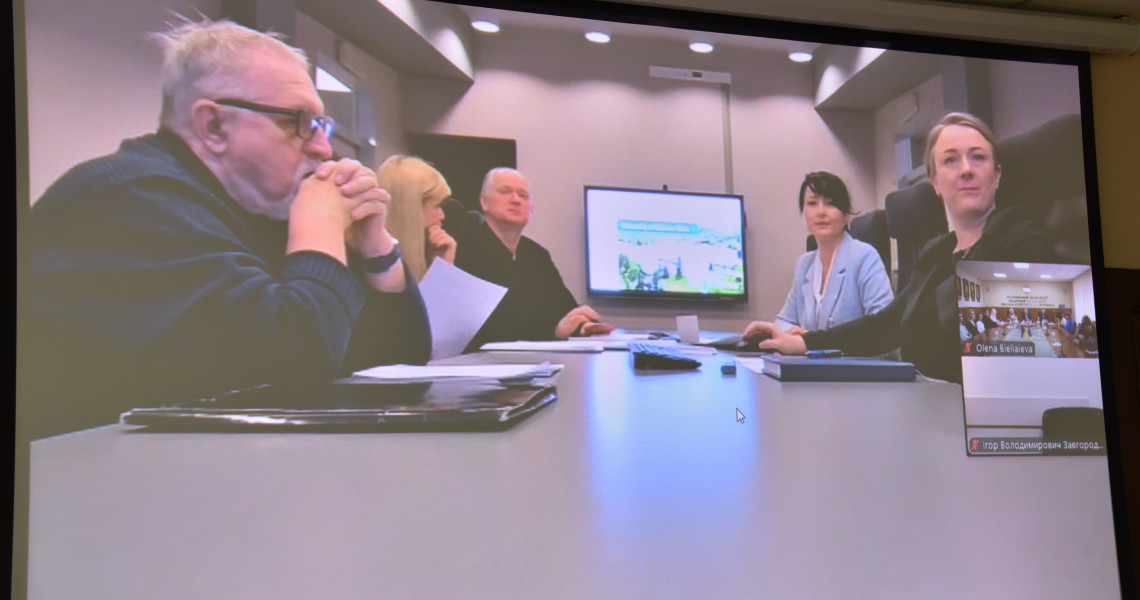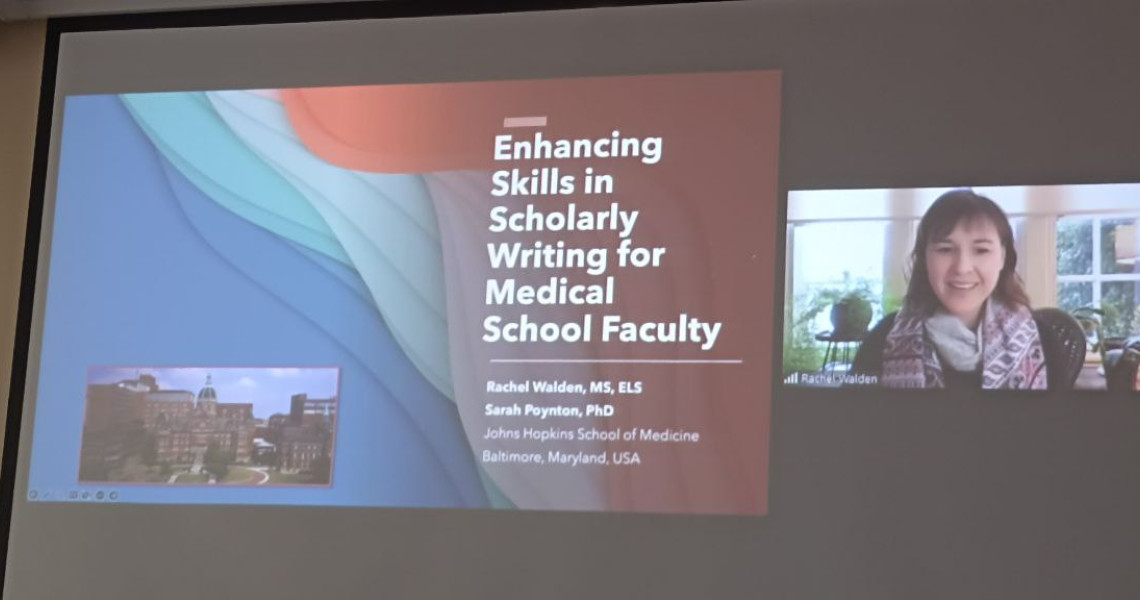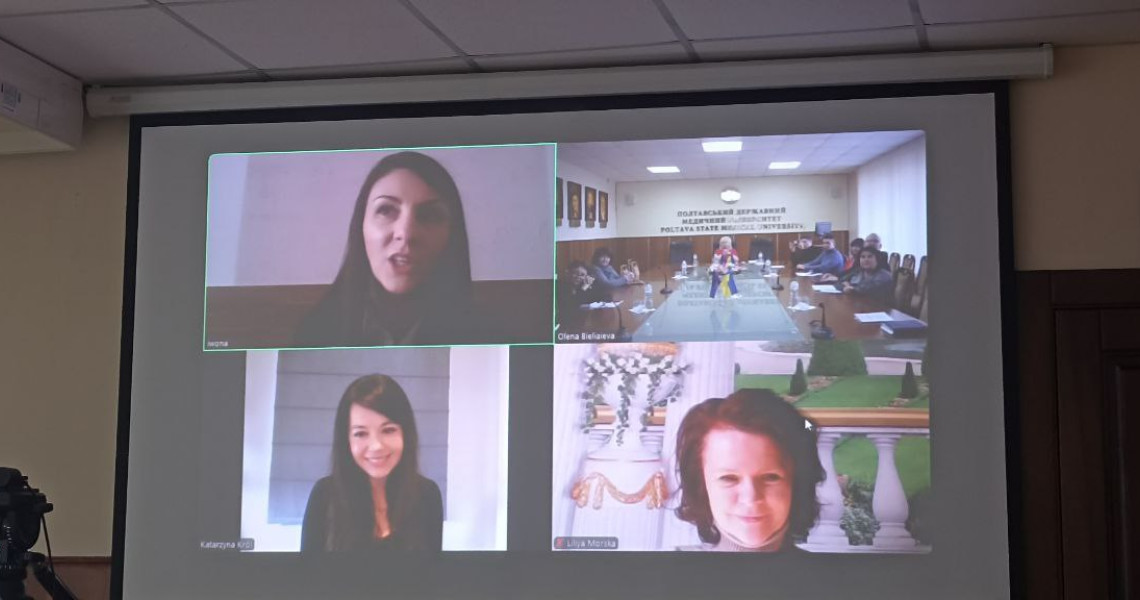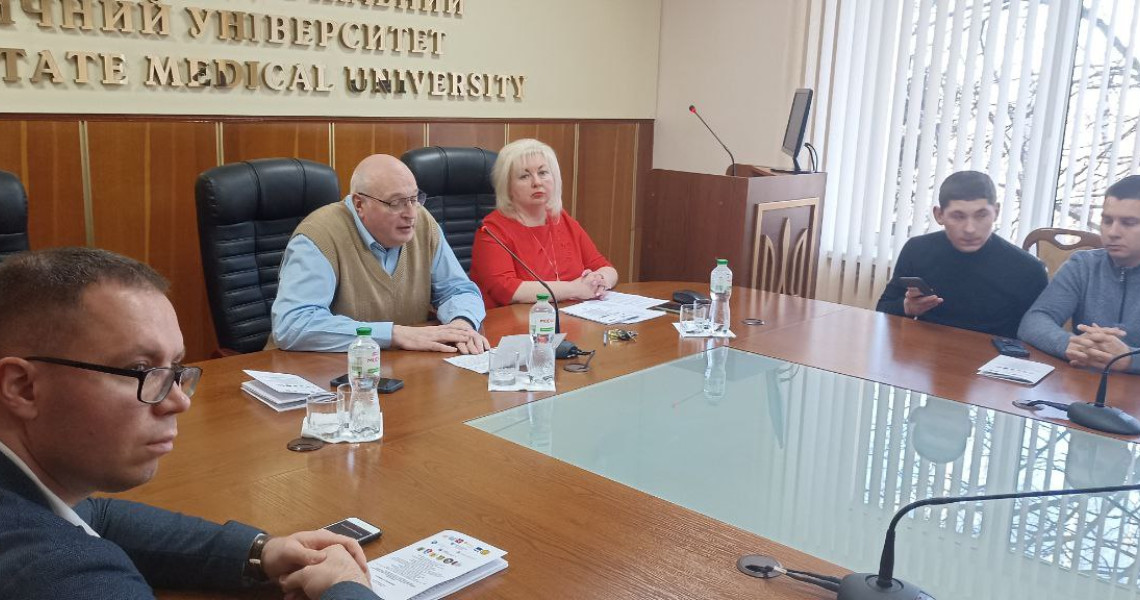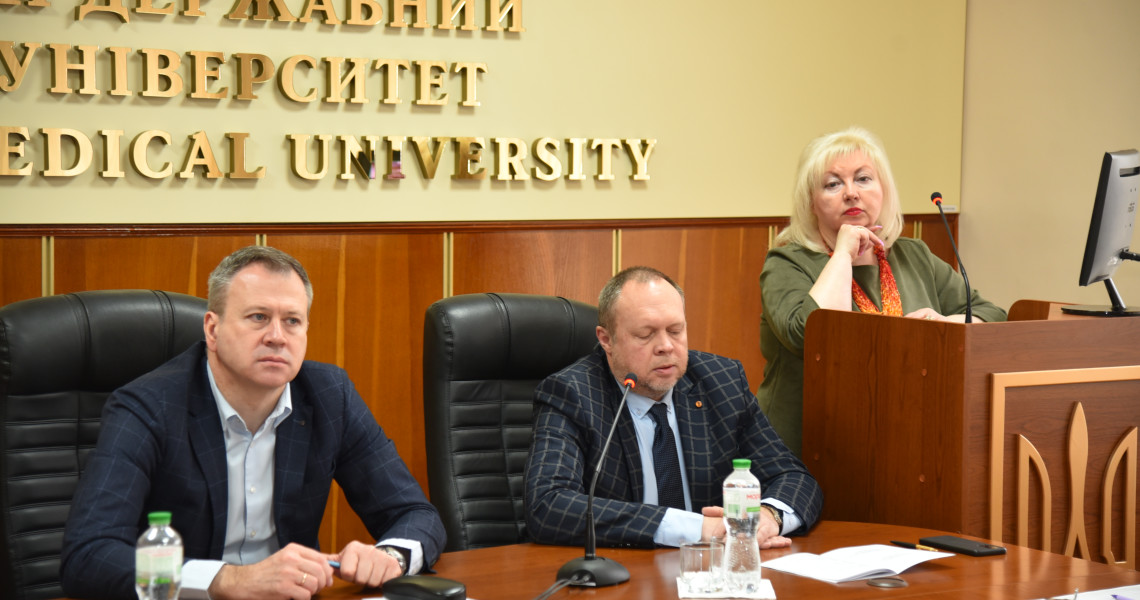On February 12-14, 2025, Poltava State Medical University hosted a landmark event in a mixed format - the IX International Scientific and Practical Conference “Topical Issues of Linguistics, Professional Linguodidactics, Psychology and Pedagogy of Higher Education”, which brought together scientists from 16 countries - from Poland to Canada, from the United States of America to Senegal.
Over the course of these three bitterly cold February days, the conference served as an open platform for fervent discussions on a multitude of pressing, and at times contentious, issues. These included topics such as education, particularly in the medical field; the teaching of foreign languages; academic integrity and ethical dilemmas arising from the pervasive use of artificial intelligence; the challenges faced by educators in their professional practice today, including the declining prestige of the teaching profession, especially among university lecturers, and the erosion of the social status of educators; the potential and prospects of applying advancements in neuroscience to pedagogy; and the challenges of supporting and accommodating students with special educational needs.
The aforementioned topics represent only a fraction of the presentations and discussions that took place at the conference, which featured contributions from representatives of Poltava State Medical University, Johns Hopkins University (USA), Coventry University (UK), the University of La Rioja (Logroño, Spain), the Higher School of Health in Viseu (Portugal), and a number of universities in Poland - including the University of Rzeszów, the University of Bielsko-Biała (Faculty of Humanities and Social Sciences, Institute of Neophilology), the State Academy of Applied Sciences in Jarosław, the University of Information Technology and Management in Rzeszów, and the University of Silesia in Katowice. Additionally, participants included the University of Manitoba (Canada), Dakar Business School, the University of Sri Jayewardenepura (Sri Lanka), and leading Ukrainian medical universities - such as Kharkiv National Medical University, Vinnytsia National Medical University, Lviv National Medical University, Bukovinian State Medical University, Ivano-Frankivsk National Medical University, the National University of Health of Ukraine named after P.L. Shupyk, and the O.O. Bogomolets National Medical University. Non-medical higher education institutions were also represented, including Lviv National University of Nature Management, the National Technical University of Ukraine "Igor Sikorsky Kyiv Polytechnic Institute," V.N. Karazin Kharkiv National University, Poltava V.G. Korolenko National Pedagogical University, Poltava State Agrarian University, Lesia Ukrainka Volyn National University, and the Volodymyr Vynnychenko Central Ukrainian State University. The conference also saw participation from several universities in Romania, as well as governmental and non-governmental professional associations.
The conference participants were warmly welcomed by representatives of our alma mater, including the Rector, Laureate of the State Prize of Ukraine in Science and Technology, Honored Physician of Ukraine, Doctor of Medical Sciences, Professor Vyacheslav Zhdan; the First Vice-Rector for Scientific and Pedagogical Work, Honored Scientist of Ukraine, Academician of the Academy of Sciences of the Higher School of Ukraine, Doctor of Medical Sciences, Professor Valentyn Dvornyk; and Laureate of the State Prize of Ukraine in Science and Technology, Honored Scientist of Ukraine, Doctor of Medical Sciences, Professor Igor Kaidashev. Sincere and heartfelt greetings were also extended by the co-organizers of the conference from partner institutions located in various corners of the world. The conference underscored the pivotal role of modern technologies in the educational process. Innovative tools, such as virtual and augmented reality, simulation technologies, and advanced learning platforms, have the potential to significantly enhance the quality of education, particularly in the medical field.
Special attention was devoted to the use of artificial intelligence (AI) in education. Presentations focusing on AI were delivered throughout all three days of the conference, sparking heated debates on whether AI could replace educators, whether it contributes to breaches of academic integrity, and whether it encourages students and other learners to passively consume the vast amounts of information accumulated in the digital world. Based on these discussions, conference participants formulated their perspective on AI: it is an effective tool for personalized learning, diagnosing students' knowledge, automating assessment processes, and enhancing the overall educational experience. It was emphasized that the application of AI technologies enables educators to create adaptive learning programs tailored to individual student needs, as well as to improve the outcomes of educational courses through intelligent platforms and simulators. However, AI cannot replace a human being with their emotions, knowledge, and worldview - a fact that users must fully understand. It was underscored that the use of AI technologies requires responsibility and adherence to ethical principles when working with digital tools, along with a conscious effort to prevent plagiarism. Instead, its application should aim to foster the development of analytical skills, critical thinking, and the ability to independently solve complex problems.
During the discussion of innovative teaching methods, the topic of applying "mindfulness" technologies in education was raised. One of the key issues addressed at the conference was the Pygmalion phenomenon. It was emphasized that positive expectations and support from educators can significantly enhance students' academic performance and motivation. An important aspect of the conference's work was the question of further implementing facilitative and personalized approaches to learning.
Considerable attention was also given to neurodidactics - a new field that explores how neurobiological processes influence learning and information perception. The necessity of integrating neurodidactic approaches into education was highlighted, aiming to improve knowledge acquisition and the development of skills and competencies. This involves leveraging scientific insights into neuroplasticity, attention, and memory to create optimal conditions for both teaching and learning.
Throughout the conference, participants repeatedly focused on issues related to the development of academic writing skills. The presented papers emphasized that cultivating academic writing skills is essential for effectively composing scientific articles, reports, and dissertations, and, more broadly, for written scientific communication. Key aspects include fostering critical thinking, organizing information coherently, employing an appropriate scientific style, and adhering to proper citation practices.
In the course of the discussion, it was emphasized that Latin continues to be the basis of international medical terminology. The speakers emphasized that knowledge of Latin is essential for accurate and correct understanding of medical terms and their use in scientific and professional practice. Particular attention was paid to the problems of medical translation, including the need to teach students to accurately and correctly translate medical texts, which involves taking into account the specifics of the development and functioning of medical terminology. The conference participants emphasized the importance of lexicographic research, which plays an important role in standardizing terminology, including medical terminology, thereby ensuring unambiguous professional communication.
Considerable attention was paid to the deontological training of future doctors, which is an integral part of their professional development. The conference also discussed the prospects for the widest possible implementation of a holistic approach to medical education, which considers the student not only as a carrier of knowledge, skills and abilities, but also as a person with his or her emotional, psychological, social and cultural manifestations and involves the development of personal responsibility, self-awareness and interaction with the patient at all levels - physical, emotional and social.
The importance of desimilation and assimilation of the best educational practices to improve the quality of education, including medical education, was repeatedly emphasized. The participants of the conference unanimously concluded that the exchange of experience between educational institutions and teachers allows to implement innovative methods and approaches in education, ensuring a high level of training of future specialists. Therefore, the active use of modern platforms for sharing educational content, participation in international conferences, webinars and online courses to disseminate best practices is the way all educational institutions should go. It is important that the best educational practices that show effective results are available to a wider range of teachers and students around the world.
The conference resolution adopted by its participants emphasized the need to strengthen international cooperation in education and science. Opening new horizons for joint research, exchange of students and teachers, and implementation of joint educational programs with foreign universities and research centers are condicio sine qua non for improving the quality of medical education and training specialists capable of working in a globalized world.






